News & Media
Re-Membering 40 years on: A silenced voice of liberation
The voice of Robert Mangaliso Sobukwe, one of the greatest leaders of the Azanian liberation struggle, was recently summoned at a university gathering of Pan Afrikanists in honour of this authentic Afrikan leader.
The event on 24 October 2018, held by Unisa’s College of Human Sciences (CHS), was the first of its kind for any university, said Professor Puleng Segalo, Head for Research and Graduate Studies in the college, as she welcomed guests. She said the aim of the event was to unpack what the silencing of Sobukwe’s voice means for black people today. “This year marks 40 years since Sobukwe’s untimely death,” she said, as she reflected on the leader.
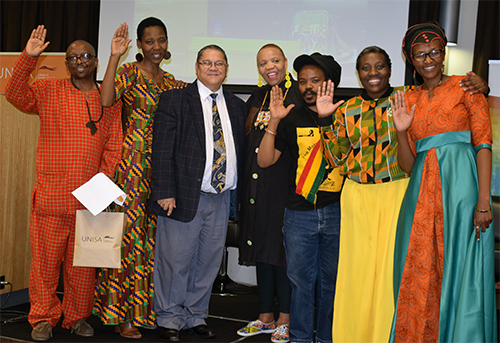
Simphiwe Sesanti, Prof Puleng Segalo (Head for Research and Graduate Studies, CHS), Prof Andrew Phillips (ED: CHS), Mohao Pheko, Thando Sipuye, Luleka Flathela, and Zandi Radebe (Department of Political Sciences, CHS)
Sobukwe was one of the founding presidents of the Pan Afrikanist Congress of Azania (PAC), a liberation movement that laid a firm foundation for Afrikan people to start their long and arduous quest towards freedom and self-determination, both nationally and continentally. As a liberation movement, the PAC sought to build the fighting capacity of the masses by reversing the colonially imposes inferiority on the minds of the Afrikan by infusing a sense of self-reliance that would lead the Afrikan come to consciousness and assert the Afrikan personality by choosing “to starve in freedom rather than have plenty in bondage”.
No historical audiovisuals nor voice recordings
As organiser of the event, Zandi Radebe from the Department of Political Sciences and the Blackhouse Kollective, said that 40 years after his death in February 1978, Sobukwe’s memory and legacy remain largely obscured within the current democratic dispensation.
“Sobukwe’s ideas and thoughts serve as a reminder that Afrikans need to do more to keep the memories of the past and present alive, which will enable them to shape their destiny for a better future. His philosophical, political and intellectual contributions to the liberation struggle have been pushed to the periphery as he remains one of the most silenced voices of liberation in Azania.”
She said although Sobukwe received broad press coverage, there remain no historical audiovisuals nor voice recordings of his voice. “The classified flies on Sobukwe have not been opened up by state security and intelligence authorities in the democratic dispensation. There remain a limited number of scholarly contributions from South Africa’s black intelligentsia that offer critical appraisal of Sobukwe’s contribution and his brand of Pan Afrikanism ideology.”
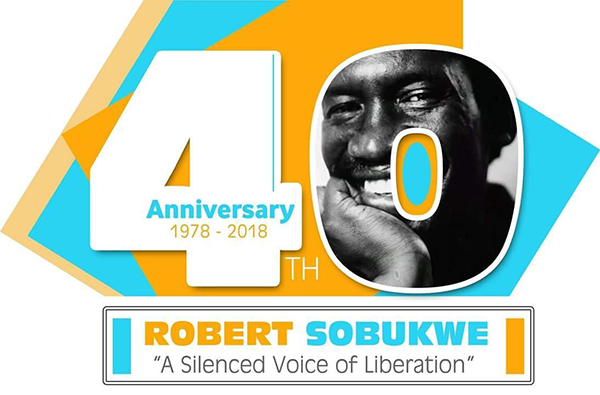
The event was streamed live by the SABC. Click here to watch the video on YouTube.
The purpose of the event’s conversation was to interrogate and unpack some of the colonially inherited technologies of silence and the mechanisms behind the continued silencing of Sobukwe’s liberatory vision, his voice as a philosopher, leader and freedom fighter.
His memory is uncomfortable for a country that wants to forget the past
The panellists, who included Simphiwe Sesanti, Mohao Pheko, Luleka Flathela, and Thando Sipuye, reflected critically on the meaning of Sobukwe’s dynamic leadership as a Pan Afrikanist, the neglected contributions of his intellectual work in the fields of land and education.
Sipuye described Sobukwe as a noble character, a teacher, a father, husband and brother. “He was an outstanding man, the man most feared by the racist apartheid authorities.” Pheko said that the country was begging for a mental revolution—the kind of revolution that Sobukwe would have ensured but was therefore silenced. “His memory is uncomfortable for a country that wants to forget the past…We need to remember him and take actions around his ideas.”
Reflecting on Sobukwe and the law, Flathela said that South Afrika as a country can be described as a consolidation of land robbery. “The name South Afrika and its establishment is a result of colonial conquest…And the foundation of South Afrikan laws are based on colonialism, racism, imperialism, and patriarchy.” She encouraged Afrikans to study law to influence jurisprudence that will service the revolution.
Sesanti spoke on the marginalisation of Pan Afrikanist thought and the marginalisation of Sobukwe’s legacy in public memory and national consciousness. He offered some advice about advancing the memory and legacy of Sobukwe to restore the country and Afrikan people and stated: “We shall not advance in the revolution if we do not have a sense of discipline and those are things we are yet to learn.” He added that Sobukwe lives in the hearts and minds of Pan Afrikanists and even without an audio recording of his voice, he has always spoken to Pan Afrikanists.
Executive Dean of the college, Professor Andrew Phillips, delivered a final word on the importance of honouring Sobukwe and other marginalised voices from the liberation struggle. “The College of Human Sciences will always hold Robert Mangaliso Sobukwe in high esteem,” he concluded.
*By Rivonia Naidu-Hoffmeester
Publish date: 2018-11-07 00:00:00.0

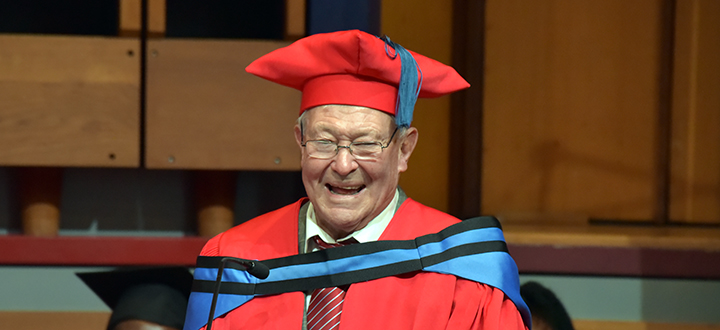 Community champion and agricultural entrepreneur extraordinaire honoured by Unisa
Community champion and agricultural entrepreneur extraordinaire honoured by Unisa
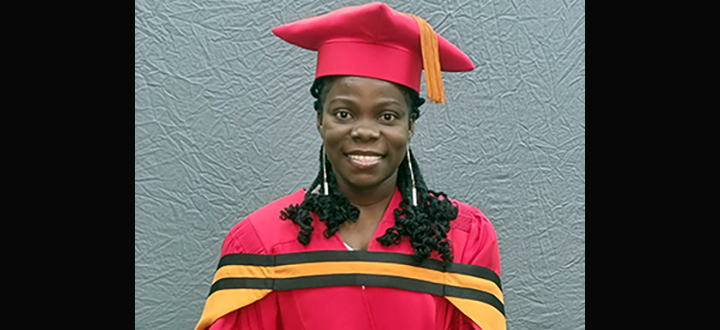 Ghanaian-born Swede earns PhD in Information Sciences from Unisa
Ghanaian-born Swede earns PhD in Information Sciences from Unisa
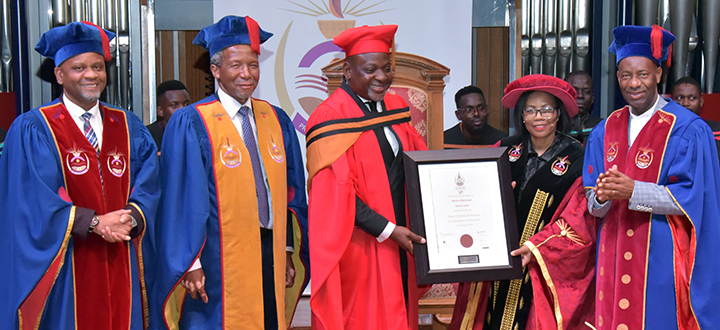 Unisa awards honorary doctorate to exemplary philanthropist and entrepreneur Collen Tshifhiwa Mashawana
Unisa awards honorary doctorate to exemplary philanthropist and entrepreneur Collen Tshifhiwa Mashawana
 Inhlanyelo Hub explores financing and sustainability at the International Conference on Business Incubation
Inhlanyelo Hub explores financing and sustainability at the International Conference on Business Incubation
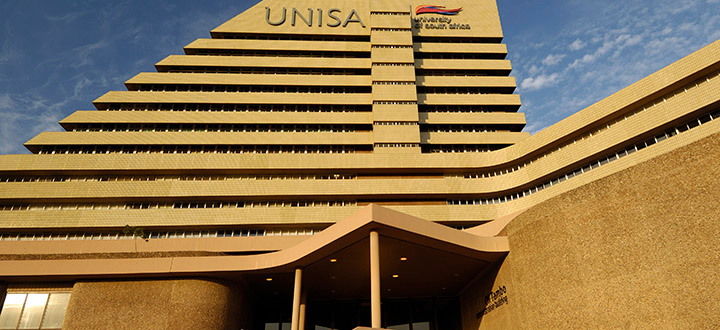 Unisa remains anchored among the waves
Unisa remains anchored among the waves